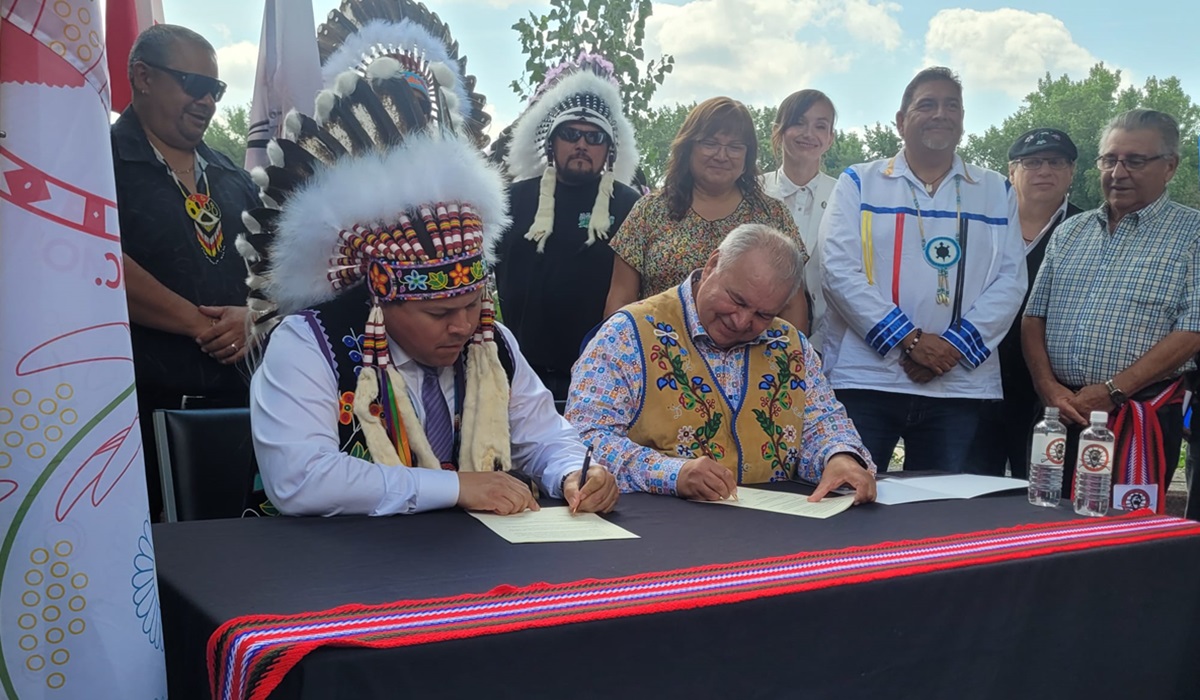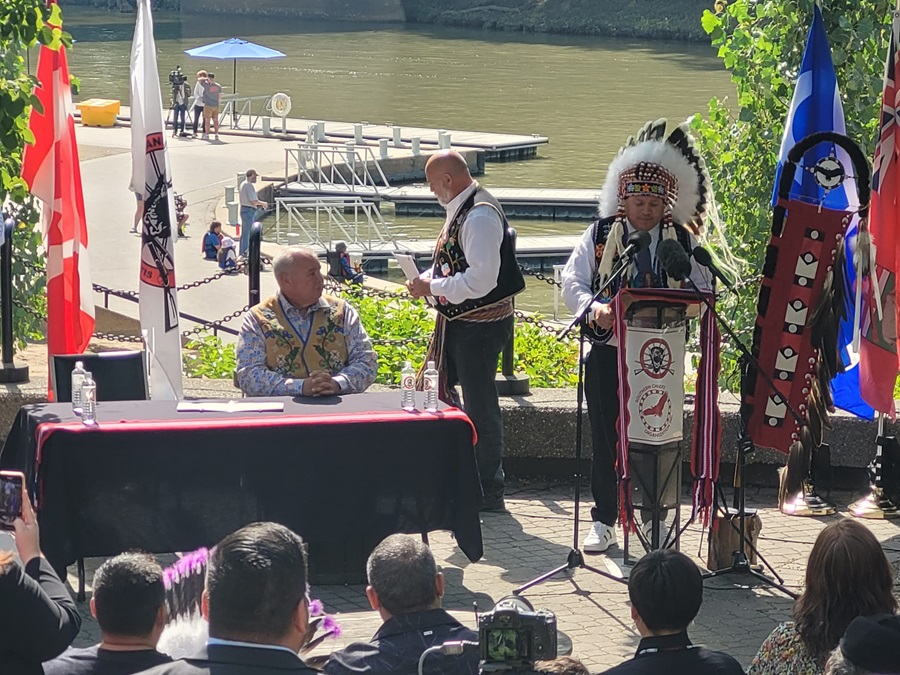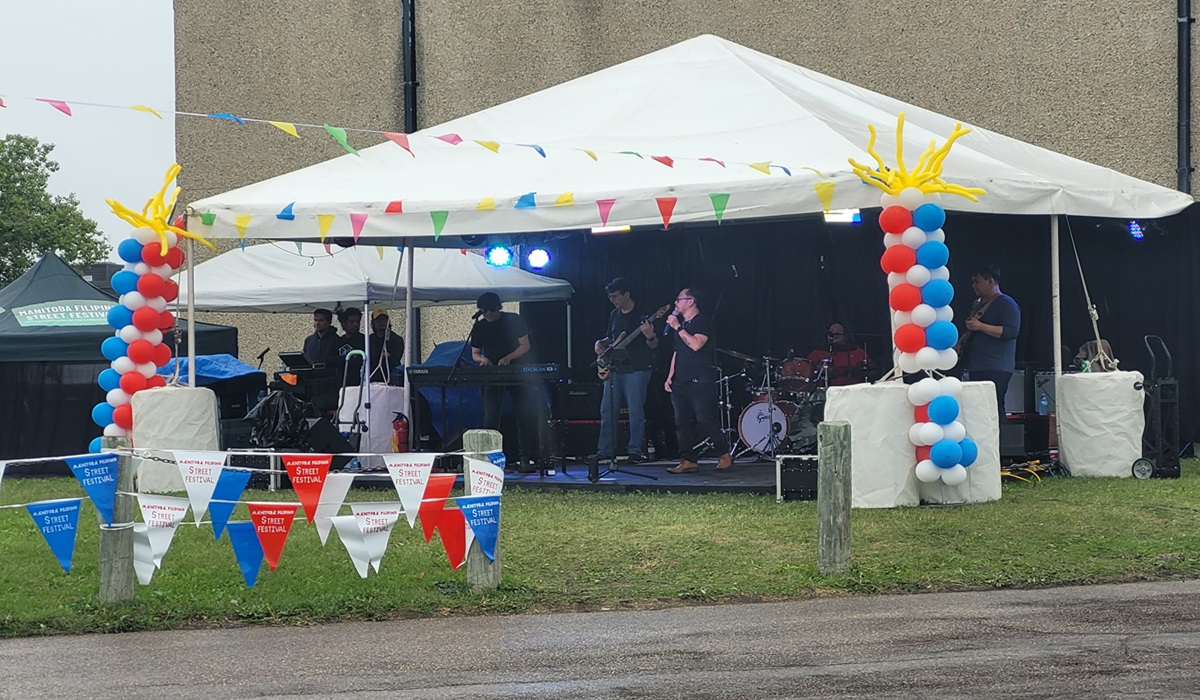Unity, Stability, and the Politics of Perception: SCO–MMF Agreement Faces Internal Test
- TDS News
- Trending News
- Indigenous
- Op-Ed
- August 23, 2025

By: Donovan Martin Sr. Editor in Chief
Winnipeg, August 23, 2025 — The August signing of a Memorandum of Understanding between the Southern Chiefs’ Organization and the Manitoba Métis Federation was designed to project strength. Held at The Forks, the ceremony symbolized collaboration between First Nations and Red River Métis leadership at a moment when Ottawa is tying billions of dollars in infrastructure and development funding to Indigenous partnership. On paper, it was the kind of alignment federal governments have long said they want to see: consolidated representation, regional stability, and leaders able to speak with authority for tens of thousands of people.
Yet within days, that show of unity has been shadowed by growing dissent. A bloc of chiefs has called for a no-confidence vote against Grand Chief Jerry Daniels at the organization’s September meeting. The demand, they argue, stems from a lack of consultation before Daniels signed the agreement with the MMF. In their view, such a decision required broader input and ratification.
The timing is politically awkward. Daniels was only recently re-elected by the chiefs he represents, securing a fresh mandate. To revisit his leadership so quickly risks more than internal discord — it sends a message to governments in Ottawa and Winnipeg that stability is fragile. For officials weighing whether to trust Indigenous organizations with multibillion-dollar agreements, even the perception of instability can be enough to slow down or stall negotiations.

The stakes are not abstract. First Nations communities have spent decades pressing for reliable access to clean drinking water, improved housing, modern healthcare facilities, and employment opportunities. These are not luxuries — they are basic necessities that remain unmet in far too many places. Governments have signaled their willingness to fund shovel-ready projects that tackle these longstanding gaps. Instability within an organization at the negotiating table does not simply weaken political standing — it risks delaying clean water systems, stalling housing construction, and pushing much-needed infrastructure to the back of the line.
The debate also highlights a persistent tension in Indigenous politics: how to balance the need for decisive, regional leadership with the requirement for internal consensus. Governments prefer to negotiate with consolidated entities, not shifting coalitions or rival factions. For Daniels, the MOU was an opportunity to strengthen his organization’s leverage, ensuring that First Nations would sit at the same table as the MMF when federal dollars are allocated for projects under Bill C-5. For his critics, the issue is less about the agreement itself and more about the process by which it was reached.
What complicates matters further is the stature of MMF President David Chartrand. For decades, Chartrand has steered the Métis Federation with a steady hand, weathering political changes and consistently extracting results from governments. His reputation is that of a leader who can not only survive but thrive in the grinding realities of political negotiation. That durability gives the MOU credibility, regardless of how it is received within First Nations circles. Ottawa knows Chartrand is not going anywhere — and that adds weight to his side of the table.

This imbalance of perception is where Daniels’s challenge becomes most acute. If the Grand Chief enters September’s meeting under threat of removal, it casts a shadow over the partnership with Chartrand and undercuts the unified front the signing ceremony was meant to project. To outsiders — especially federal officials who crave predictability — it risks looking like Manitoba’s First Nations are struggling to present a coherent voice.
That impression stands in sharp contrast to the organization’s recent achievements. The redevelopment of the former Hudson’s Bay Company building into Wehwehneh Bahgahkinahgohn is one of the most ambitious Indigenous-led projects in the country. It aims to provide affordable housing, cultural space, healthcare services, and employment opportunities — transforming downtown Winnipeg in ways that align directly with federal priorities on reconciliation and urban renewal. Likewise, ongoing advocacy for clean water infrastructure and housing in First Nations communities demonstrates the kind of progress that is possible when organizational energy is focused on outcomes rather than internal fights.
Which is why the push for a no-confidence vote so soon after Daniels’s re-election seems, to some observers, premature. It risks conflating disagreements over process with questions of overall leadership. Governments are adept at reading signals, and the signal sent by an internal leadership fight is rarely interpreted generously. It can create doubts about whether funding agreements will be upheld, whether projects will reach completion, and whether commitments signed today will survive tomorrow’s political disputes.

The federal government has made clear it wants to move quickly, prioritizing shovel-ready projects that can deliver housing, water systems, and infrastructure now. Instability within any Indigenous organization not only delays this process but risks diverting funds to other regions or groups perceived as more reliable. Restarting negotiations because of leadership uncertainty would be more than a setback — it would be a missed opportunity with lasting costs for communities waiting on the ground.
As September approaches, the choice is less about Jerry Daniels as an individual and more about what the organization wants to project. Will it emphasize stability, demonstrating to governments that it can manage internal disagreement without dismantling leadership? Or will it prioritize short-term dissatisfaction at the risk of undermining its broader strategic position? The decision carries implications far beyond Winnipeg or The Forks.
The signing of the MOU was meant to show that Indigenous leaders in Manitoba can bridge historic divisions to speak with one voice. Whether that voice resonates in Ottawa depends on what happens in September. If internal disputes eclipse strategic opportunities, the costs will not fall only on Daniels or his critics — they will be borne by the communities still waiting for clean water, better housing, and a fair chance at renewal.








